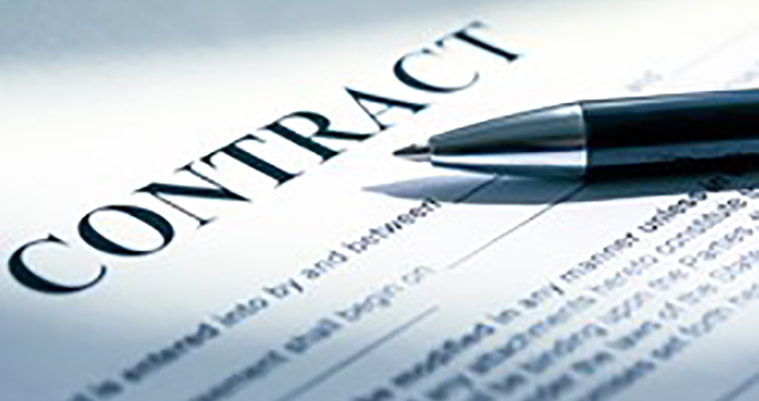There are several ways to invest in short sales in the real estate market. Here are a few options:
Please keep in mind, and it's worth noting that short sale investing is not for everyone, it can be complex and time-consuming, and it also carries a higher level of risk than other types of real estate investing. Therefore, it's important to do your own research and consult with a real estate professional before making any investment decisions. If you have questions about short sale real estate investing, give us a call.
0 Comments
Short sale? What is a short sale? People are wondering while in financial crisis, how can they avoid foreclosure. Well, some may consider a short sale. This article will give you a background on short sales, the process of short sales and their impact on the real estate market.
What is a short sale? A short sale in real estate is a sale of a property in which the proceeds from the sale fall short of the balance of debts secured by liens against the property, and the lien holders agree to release their lien on the real estate and accept less than the amount owed on the debt. This can occur when the property owner is facing financial difficulties and is unable to make their mortgage payments, and the lender agrees to a short sale rather than foreclosing on the property. What are the steps of a short sale?
How do short sales impact the real estate market? In the short-term, short sales can help to reduce the number of foreclosures in a given area, which can help to stabilize home prices and prevent further declines in property values. Additionally, short sales can help to clear out inventory, which can help to improve market conditions for sellers and buyers alike. In the long-term, however, short sales can have a negative impact on the market. For one, they can depress home prices by introducing a significant number of distressed properties into the market. Additionally, short sales can increase the number of "underwater" mortgages, which can make it difficult for homeowners to refinance their homes or sell them at a later date. Moreover, short sales have a negative impact on homeowners' credit score and can limit their ability to purchase another property in the near future. This can also have an impact on the real estate market as it might limit the number of potential buyers. Overall, short sales can be a useful tool for addressing the challenges posed by foreclosures and declining property values, but they can also have negative consequences for the overall health of the real estate market. For more information on short sales, call us.
1. After the contract is executed by all parties, the inspection period begins. During the inspection period, you want to "kick the tires" and "look under the hood." Getting a house inspection, termite inspection and pipe inspection are just the beginning. Anything you may think of, that you believe may cause a potential problem, should be inspected. After it's inspected, you may have a few follow-up items for the seller. Take you time, ask questions and get all of the information you need during this inspection period. It's very important.
2. Sending the Escrow Deposit.- pay attention to your due dates. Do not miss your due date for the escrow deposit. It's very important to submit it on time. 3. Check the status of your loan application. If you have not already started working with a mortgage loan officer, you should do so ASAP. You do not want to run out of time and have to ask for an extension to the closing date because your loan application has not been approved. Your loan application needs to be started as soon as possible. And while your loan application is pending, don't make any major changes to your status. You know, no job changes, no large purchases, et. This can slow down your loan approval and may actually cause it to be denied. 4. You will also need to obtain insurance. Shop around and secure the coverage that is most cost-effective for you while providing you the complete coverage and security your need. 5. Follow up with the title company for your closing date. You may be required to bring funds to the closing table. Confirm your closing date and make sure that your funds will be delivered on time. You do not want to be the hold-up on your signing. If you have any questions about this closing timeline or any other timelines concerning your real estate transaction, please feel free to contact us for more details. Some may ask: "How easy is it to sell a home?" Well, it can be easy if you put yourself in the shoes of the buyer. When the buyer walks into your home, how can you ensure that the buyer can view it as his/her "new home?" Here are a few suggestions for you to consider:
1. Is your home "too personal?" Is it specific to your taste? Or does it reflect a canvas in which a potential buyer can visualize living? Ask yourself:
2. Does your home look cluttered? How is our property perceived? Is the lawn manicured? What about peeling paint? The property should look as if it is "well-cared for." The ideal property would be neutral, uncluttered, and smells new and clean.
3. What about the outside of your home?
4. Make sure drapes are open and lights are on for your showings. More importantly, MAKE YOURSELF SCARCE! Buyers want to feel comfortable and speak freely during the showing. They want to be able to picture themselves living in the home. And believe me, it's a lot better to visualize when you are comfortable and don't have to wonder whether someone is listening. For more questions, please feel free to contact us, we will be glad to help. When choosing a real estate agent, it's important to consider the following:
 Buying a home is one of the most significant investments you'll make in your lifetime. It's also a process that can be both exciting and overwhelming. With so many steps involved in the home buying process, it's important to have a good understanding of what to expect and what you'll need to do. In this article, we'll take a closer look at the home buying process, from getting pre-approved for a mortgage to closing on the sale. When I purchased my first home, I remember I was in law school and I remember everyone telling me that it could not be done. So, of course, I had to prove them wrong by purchasing my first home during my second year in law school, while traveling as a flight attendant. It was stressful, but definitely worth it. Now, let's get down to brass tacks. The absolute first step in buying a home is getting pre-approved for a mortgage. This involves submitting financial information to a lender and having them determine how much you can borrow. This step is important because it gives you an idea of what you can afford and helps you narrow down your search to homes that are within your budget. You'll also need to have your credit score checked, which is used to determine your interest rate. Remember, the mortgage company provides a guide of how much home you can afford. However, you do not need to find a home at your maximum price point. It's ok, to go below your price point so that you can fell comfortable with such a huge investment. Once you have a good idea of what you can afford, it's time to start searching for a home. This can be done with the help of a real estate agent, by searching online listings, or by looking at open houses. Your real estate agent can help you find homes that meet your specific needs, such as location, number of bedrooms and bathrooms, and overall style. You can also look on your own and also check "For Sale by Owner" websites. But my recommendation is that you work with a licensed real estate professional who can be of huge assistance in navigating the process. Once you find a home you want to buy, you'll need to make an offer to the seller. This typically includes a proposed purchase price and any contingencies, such as the sale being contingent on the buyer obtaining financing. Both Texas and Louisiana have required forms that should be used in submitting an offer. For more information, you may want to check with your real estate professional or go to your state's real estate commission website. After your offer is submitted, the seller will either accept, reject, or counter your offer. If the offer is accepted, you'll have the opportunity to have the home inspected to identify any potential issues that need to be addressed. After the home inspection is completed and any issues have been resolved, you'll need to finalize the sale by signing a purchase agreement and closing on the mortgage. This is the point at which the sale is considered official and the home is transferred from the seller to the buyer. Closing costs, such as attorney fees and title insurance, will be due at this time. In preparation for your closing, you will receive a disclosure statement which will detail the costs involved. If you should have any questions or concerned, it would be best to voice them before you reach the closing table. Finally, it's time to move into your new home. This can be an exciting and busy time, but with a little preparation, it can be a smooth and stress-free process. You will want to make sure all your utilities are set up and that your furniture and belongings are organized and properly placed. Overall, buying a home is a big decision that requires a lot of time and effort, but with the right preparation, it can be a smooth and enjoyable process. It's important to have a good understanding of the home buying process and what to expect before you start looking for a home. By working with a real estate agent and a lender, you can make an informed decision that will help you find the perfect home for you and your family. If you should have any questions about buying a home, feel free to contact us for more information. When preparing to purchase a home, there are some DO's and DON'Ts to keep in mind. If you have any questions, please feel free to contact us at [email protected].
|
AuthorCandace is a real estate broker and attorney who has been in business for over 20 years, She enjoys helping buyers, sellers, investors and entrepreneurs in achieving their property dreams. In hear spare time, when she is not working, she hangs out with her husband Robert and her dog "The Rhino" Feel free to contact Candace via email at: [email protected] or text (469) 444-0262. ArchivesCategories |






 RSS Feed
RSS Feed